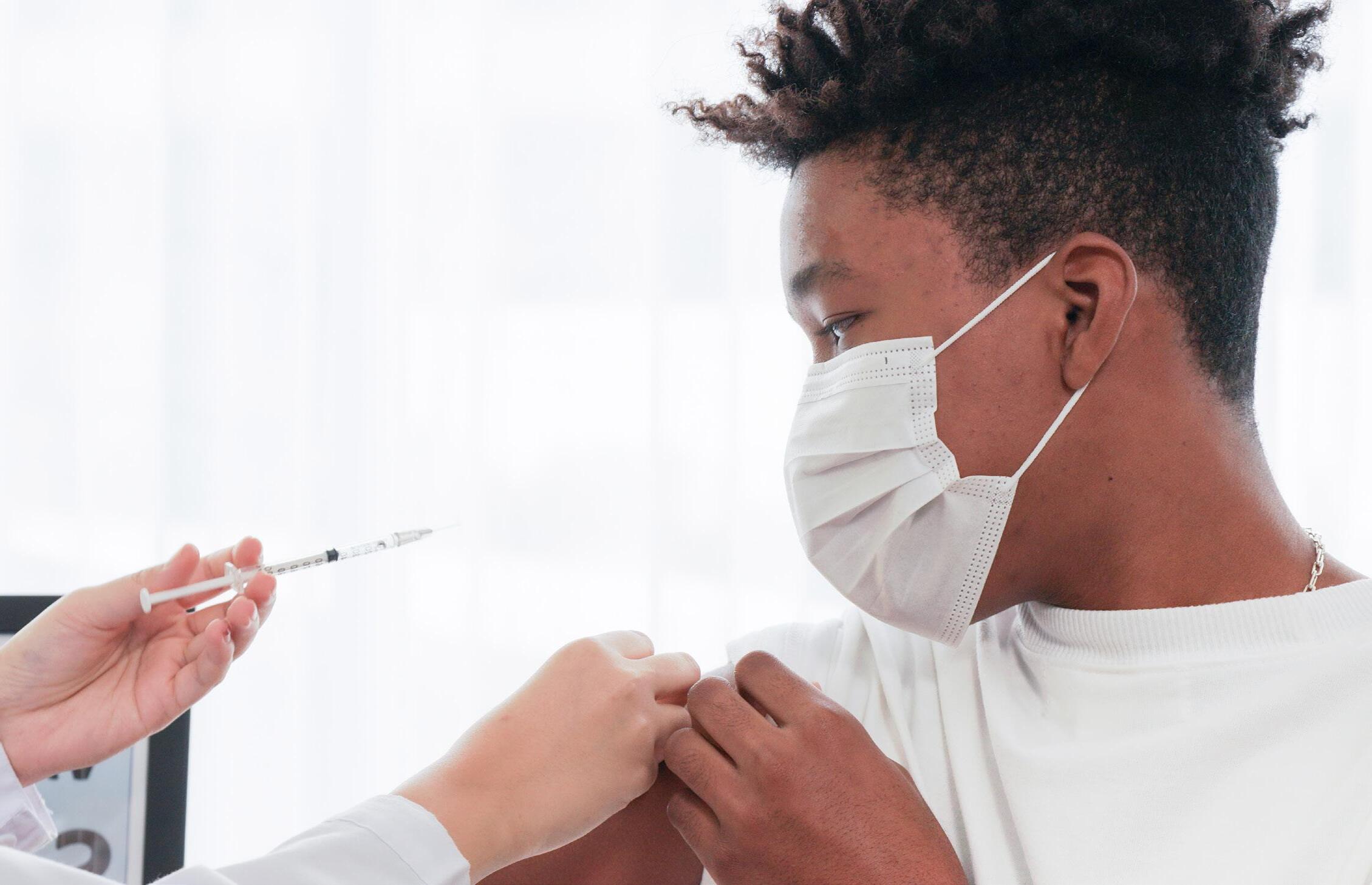
1 minute read
Decline in Vaccinations Puts Children, Families at Risk
BY PILAR BRADSDHAW, M.D., F.A.A.P. EUGENE PEDIATRIC ASSOCIATES
PEDIATRICIANS LOCALLY AND ACROSS the nation are concerned about the health of children because fewer kids have been getting vaccinations in recent years, increasing the risk that otherwise preventable diseases will spread among children and families.
Many infectious childhood diseases once posed much broader threats than they do today. Before a vaccine became available, measles infected millions each year in the U.S., leading to hundreds of deaths. Polio once paralyzed tens of thousands each year in this country alone. Unfortunately, lower vaccination rates have led to resurgences:
• In November 2022, measles affected more than 80 children in Ohio. In 2019, a major flareup led to more than 1,200 cases in the U.S, including nearly 30 in Oregon.
• Incidences of pertussis, or whooping cough, have become much more common. Oregon saw a spike of more than 900 cases in 2012. In 2020, the state had nearly 200 cases.
• Even polio, which has been declared eradicated in the U.S., had a case last year in New York, the first in more than 30 years. An unvaccinated young adult there became paralyzed.
FEWER VACCINATIONS, GREATER RISK
Unvaccinated children are much more likely to catch and transmit an illness. In Oregon’s 2012 whooping cough outbreak, unvaccinated kids were three times more likely to become ill. When vaccination rates drop, community-wide protection, or herd immunity, also declines. If one or two in a group of 100 are unvaccinated, the risk to the group isn’t that high, but if 10 or 20 choose against immunization, the risk to everyone is much higher, especially as repeated infections lead to new strains.
Vaccine Recommendations
Young children aren’t only at risk, but teenagers as well. The American Academy of Pediatrics recommends vaccinations to guard against a whole host of serious illnesses, such as hepatitis, diphtheria, tetanus, whooping cough, meningitis, polio, measles, mumps, rubella, chickenpox, encephalitis and HPV.
COVID-19 and influenza immunizations are also important. While they don’t always prevent the illness, they do significantly reduce the risk of hospitalization, pneumonia or severe infection.
By keeping up to date on immunizations, the risk to children is much lower. We are happy to address your questions and provide you with information regarding vaccines. Let’s work together to protect our children from preventable illnesses. ✦











